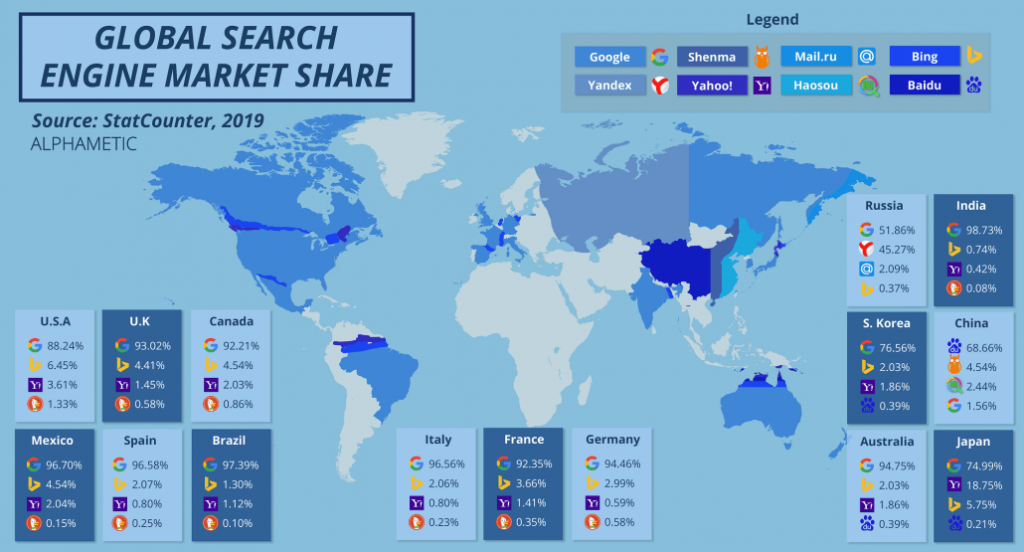SEO localization is the process of increasing the traffic to a website with organic search results in the right target language. Localized SEO (search engine optimization) helps marketers increase their traffic in different areas of the world.
Here‘s an example—let’s say your eComm site sells wristwatches in the US and has recently expanded to Mexico. Translating your website into different languages is a great start. But you can’t guarantee that people will visit your site without optimizing SEO for everyone. The English word watch could be the perfect search keyword for America, but not Mexico. Spanish speakers won‘t find your site unless you optimize search for their local keyword: reloj.
In this guide, we’ll share the benefits of localized SEO and share some tips for getting started.
Benefits of Localized SEO
If potential customers around the world can’t find you in search results, you might miss out on their business.
Here are some of the benefits of localized SEO.
Targeting Local Customers
International SEO is all about keywords. When targeting a local customer base, it is important to use local terminology. The local terminology for a commodity might be different from the actual terminology. It is important to use local search engines to get an idea of the local keywords that can help drive traffic to your brand.
Enhancing Local User Experience
Proper use of local keywords helps you to rank higher in local search engine results pages or SERPs and is likely to increase the number of visitors to your page as well as result in some profitable conversions. A good localized SEO strategy also is proven to lower bounce rates.
Localized SEO results improve the overall customer experience, too. Customers prefer to use their native language and visit sites that are easily accessible and in their own locale. Catering to the local language ensures that visitors will stay longer on the website.
Building Credibility and International Growth
Website localization builds your credibility. Your reputation starts with the local target market and grows outward from there. As the credibility for your brand builds, so will its reputation.
A bad ranking in local search results can be an eye-opener to how your website will rank internationally. Ranking better in local SEO can help you to achieve a high Domain Authority. DA measures how powerful your website is and helps you develop an idea of how well your website would do in comparison to other websites.
Localization of your SEO will also help you to widen your reach. As you tap into new markets, you reach a bigger audience across the world.
Best Practices for SEO Localization
If you’ve invested in a multilingual website, you’ve got to make sure your target audience can find it in search. English search results aren’t enough. SEO is an important step of the localization process.
Here are some tips for effective SEO localization.
- Research Your Target Market
Consult with SEO experts to find out what search terms are most common for your target audience. They may use local slang, idioms, or unfamiliar terminology to find you. So you’ll need to make sure those terms are covered as keywords. - Use Geotargeting
With geotargeting, you can target your website to users in a single specific country that speaks a specific language. According to Google, you should use a country-specific URL structure or subdomain and keep it consistent. For example, IKEA uses ikea.com/DE for Germany and ikea.com/US for America. You can also use hreflangtags to help search engines index your content for the right locale. - Translate All Important Site Elements
Before they click your page, people browse search engine results pages (SERPs). Translate all these elements of your web pages to make international SERPs look better:- title tags and meta descriptions
- image alt tags
- URLs
- Understand Local Search Engine Preferences
Each search engine operates on its own different algorithm. Plus, some countries have unique search preferences. For example, most Google functionality is firewalled in China, so Chinese consumers prefer to use Baidu or Yandex instead. That’s why it’s important to know your target audience and optimize your content for the right search engine.
Website and SEO Translation with Localize
With high-quality translations, your website can be SEO-friendly in multiple languages. This serves as a powerful digital marketing tool for taking your brand to new markets.
Ready to go global? Localize is a translation management system (TMS) that can simplify your localization strategy. Localize makes website translation easy—and we include metadata—for great search results all over the world.
Ready to translate your site and improve your international SEO? Contact Localize today.







